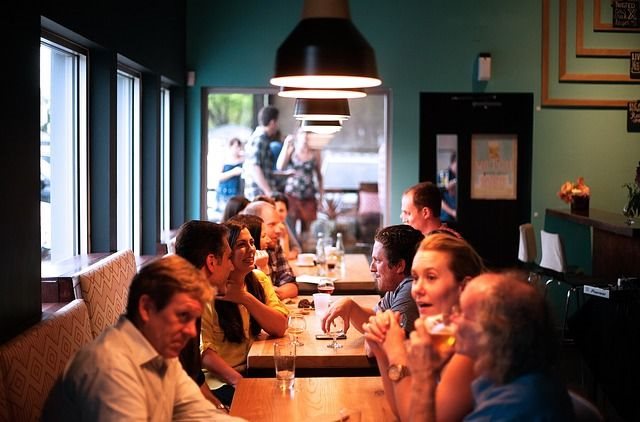While many sectors have found reprieve in the easing of the national lockdown to alert level 1, which includes the reopening of borders to tourists, the South African restaurant industry is experiencing a slow recovery.
Strict operating hours, limitation on number of patrons that can be accommodated, health protocols and social distancing measures remain in place for all restaurants, and added to this, a growing fear of a "second wave" is likely to keep many patrons away from restaurants for some time to come.
From having contributed R6bn monthly to the national economy and employing more than 500,000 people last year, Covid-19 has resulted in many once-bustling restaurant businesses having to fight for survival.
In fact, the Restaurant Association of South Africa has stated that nearly a third of local restaurants have already closed shop since the onset of the lockdown, while 70% have had to retrench employees.
Yet, despite being one of the hardest-hit industries, the latest Fitch SA Consumer & Retail Report estimates that 40% of restaurants have not received any form of government loan or support. And unfortunately, I fear these figures may be on the conservative side.
From a private financing perspective, the situation appears just as dire. Based on our administrative involvement in the Sukuma Relief Programme (Sukuma Fund) – a private initiative aimed at supporting small and medium enterprises (SMEs) that are financially impacted by Covid-19 – businesses in the restaurant industry did not fare well. Of all applications received, the sector only accounted for roughly 8%, and of the restaurant businesses that did apply, only about 30% got approved for relief funding.
Generally speaking, the reasons for such a small percentage of restaurants receiving financial support during this challenging period appear to be two-fold:
Firstly, employment in the industry is typically very unstable, with most restaurants only employing their front-of-house and kitchen personnel on a permanent basis. While wait-staff and other roles would be filled by casual workers, a business can only base its employment statistics on permanent staff, which makes it difficult to prove economic impact in terms of employment when applying for finance. Essentially, the number of permanent employees on paper is far less than the actual number of people supported by the industry.
Secondly, and arguably most importantly, it is often difficult to prove the financial viability of a restaurant. This is either because the restaurant’s financial information – balance sheets, profit statements, and so on – is not readily available or up-to-date, or, if it is, many of these businesses have actually been running at a loss over the past financial year.
This is because, even before the Covid-19 crisis hit, the South African restaurant industry has been through a rough few years. While the industry recovered fairly well from the Great Financial Recession, picking up nicely in around 2015, load shedding soon became a major obstacle and, along with the drought that plagued the country from about 2018, times have been tough for the sector ever since, with 2019 proving to be a particularly difficult year.
Future proofing operations
Essentially, this highlights the lack of resilience associated with the industry and shows how vulnerable it is to cyclical economic downturns and consumer trends.
The restaurant industry is also notorious for being fickle because patrons tend to just follow each other from hotspot to hotspot, and generally lack loyalty to any one particular establishment. This means that while a restaurant is wildly popular one season, it could be down and out the next.
But it’s not all doom and gloom. Despite them being few and far between, there are certainly restaurants within South Africa that have managed to obtain the relief funding and necessary support to survive this challenging period and future-proof their operations in the process.
With this in mind, here are four simple tips for local restaurants to avoid being left in the lurch, should something similar ever happen again.
Keep your house in order
This applies to everything from your business structure and financial information, to your employment contracts and tax compliance – ensure that you have everything you’re supposed to and stay up to date. We found that something as standard as an EMP201 – a monthly payment declaration in which an employer declares the total payment together with the allocations for PAYE, SDL, UIF and/or ETI – was not always readily offered by restaurant owners.
As is the case for any other type of business, these are the kinds of things that financiers – whether Government-based or private – will require proof of before offering any assistance or financial relief.
Have an emergency fund
In addition to keeping your business affairs in order, it’s important to build up a fund of savings during profitable months to see you through should the business hit hard times. We generally advise that a business emergency fund should consist of two-to-three months’ net income, so this is something that needs to be built up gradually over time.
Unfortunately, one thing that the Covid-19 crisis has highlighted in the restaurant sector, is just how many businesses were surviving on a month-to-month basis, which really isn’t viable from a financiers’ perspective.
Be an early adopter
Over these past few months, terms like “unprecedented times" and "the new normal" have become commonplace. What we’ve seen is that the restaurants that have been able to adapt to this changing environment the quickest – by means of embracing technology to offer seamless online delivery and implementing innovative social distancing measures – have been the ones to come out of this the strongest.
This, however, is often dependent on having the funds easily available, which ties back into the previous point of setting money aside for unexpected expenses such as these.
Build up brand equity
During tough times, brand strength and customer loyalty will be what sets sustainable businesses apart from seasonal restaurants. In this sense, we can expect to see the franchise industry come out of this stronger than before, because people tend to remember these household brands over time and will continue supporting them because they represent a sense of reliability in a time of general instability.
There will however also be the independent restaurateurs that have managed to achieve this same level of brand equity, proving long-term resilience in an industry of fly-by-nights.
At the end of the day, it goes without saying that the restaurant industry is not for the faint-hearted. People often mistake it for being glamourous and fun, when the reality is that it’s a cut-throat industry that requires endless hours of work of commitment. That said, however, it’s an industry driven by passion, and there will always be passionate restaurateurs willing to step up to the plate and prove themselves.









































